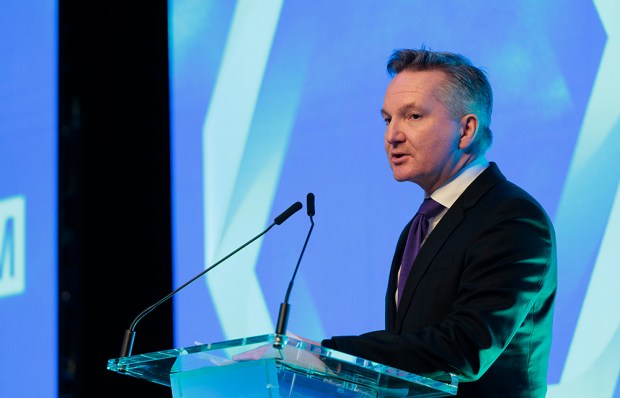The Australian Financial Review last week stood out like an island of integrity in a sea of journalistic mendacity when it exposed the key roles played by two millionaire renewable energy investors in converting the Twitter-based ‘fake news’ involving Energy Minister Angus Taylor into a phoney national media Watergate ‘scandal’. Through posts and re-tweets, their campaign built enough momentum to break the story out of its Twitter home and into newspapers and onto television screens. In an editorial lamenting the lower journalistic standards that have enabled a malign Twitter campaign to become a national media issue, the AFR makes clear: There is no evidence, anonymous or otherwise, of any wrongdoing, dodgy or even ill-advised behaviour by Taylor who [as a consultant] helped set up a company which he exited before entering federal parliament… Even those calling for a Royal Commission don’t assert that Taylor is not telling the truth when he says ‘I have not had any interest in the company in any form, nor did my family members’… Yet in the gossip swamp of Twitter (where followers can spread rumour, innuendo and mistruths with vile efficacy) a dossier purporting to show that Mr Taylor was corrupt has been shopped around by anonymous Twitter activists so much that mainstream journalists picked up the story and have been madly ‘investigating’ it… But there does not appear to be a story… Journalists who in a previous era would never have accepted material from an anonymous source, have hunted down a non-story being peddled by anonymous players online whose clear political objective is driving Mr Taylor out of politics.
The two millionaire investors, with heavy vested interests in the rapid expansion of renewable energy, set out to settle scores with Taylor who puts base-load reliability and affordability as priorities ahead of setting those economically destructive high emissions targets that would obviously benefit their interests. The determination of one, whose hedge fund is a major investor in Australian wind farms, and the other – a long-time Taylor detractor and chairman of a wind farm – to bring down Taylor is reflected in the rancid nature of the trolls’ tweets they re-tweeted in their hundreds. And the unsupported – and unsupportable – inferences of dishonesty in some of the tweets are self-evident: ‘We despise all corruption; we like to think we’re untouched by corruption compared to other countries. Watergate challenges our self-image’, was one such tweet.
So now, in the middle of an election campaign two years after Joyce as Minister approved the $80 million water purchase in which Taylor had absolutely no financial involvement whatsoever and a year after the sale was publicly questioned, these two renewables investors are campaigning against Taylor and supporting anti-Coalition independents. They are in what the AFR describes as a loose alliance of Taylor-opponents including one former SMH journalist (who has been contracted to anti-Coalition and foreign-funded GetUp!) and another individual who has campaigned against the Coalition going back to the Howard years. In one re-tweeted post, Taylor was falsely portrayed as ‘the architect of a covert scheme to exploit the government’. When Taylor threatened to sue, these retweets were deleted. But the AFR says that did not stop the agitators fanning the story across Twitter, ‘tapping into thousands of followers’ – until one of them deleted the thousands of tweets he had posted before April 25. So for three days the ABC was bombarded with Twitter demands that it cover ‘Watergate’. So it did.
Whatever the electoral outcome, the Twitter attack on Taylor has been an unwelcome diversion from his task of fighting an effective election campaign against Labor’s disastrous emissions targets. But its significance extends far beyond this election. ‘The Watergate story really highlights the pernicious influence of a few Twitter activists. (or well-organised with resources like GetUp!). This elevates conspiracy and peripheral chit-chat to become main issues during an election campaign,’ warns the AFR.
So could this be the first election whose outcome was influenced by a couple of rich Twits whose renewable energy interests stand to benefit far more under a change of government?
Got something to add? Join the discussion and comment below.
Get 10 issues for just $10
Subscribe to The Spectator Australia today for the next 10 magazine issues, plus full online access, for just $10.
You might disagree with half of it, but you’ll enjoy reading all of it. Try your first month for free, then just $2 a week for the remainder of your first year.














Comments
Don't miss out
Join the conversation with other Spectator Australia readers. Subscribe to leave a comment.
SUBSCRIBEAlready a subscriber? Log in